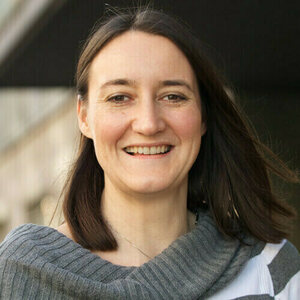"Molecular Systems Engineering for Process and Product Design" by Claire S. Adjiman

Join the Department of Chemical and Biomolecular Engineering for a lecture on the design of more sustainable carbon capture and pharmaceutical processes, featuring Claire Adjiman, professor of chemical engineering at the Imperial College London. All are welcome to join the department for networking and refreshments at 10:15 a.m. in the Scholar's Lounge prior to the seminar.
Abstract
The performance of chemical products and processes depends critically on molecular-scale interactions, and in the case of processes, on broader aspects of process design such as route selection, flowsheet structure, operating conditions. Our knowledge of complex interacting systems such as these indicates that better decisions can be made by simultaneously exploring the vast space of molecular and process variables. This is however not a trivial task as it requires reliable multiscale models that link molecular structure to system performance and effective optimisation algorithms to solve the resulting design problems. In this talk, we explore how electronic structure modelling and/or molecular-based group contribution methods can be combined with optimisation techniques to help identify promising designs and accelerate experimental efforts.
In the context of process design, we consider the design of more sustainable carbon capture and pharmaceutical processes, an endeavour that requires considering multiple criteria such as purity, productivity and environmental impact. We show how multiscale molecules-to-process models can be constructed and what challenges must be overcome to solve the integrated molecular and process design problem. We discuss algorithms to tackle these challenges and investigate what benefits can be derived from considering a range of performance indicators in CO2 chemisorption, and in reaction and crystallisation design. We discuss the importance of integrating molecular decisions, and specifically solvent choice, across multiple process steps.
In the context of product design, we consider the problem of coformer selection for a given active pharmaceutical ingredient (API) can be approached in silico. Coformers are often used in the fine chemicals industry to modify the properties (e.g., solubility) of APIs but identify a suitable coformer is a laborious and time-consuming process. We show how surrogate models, built from quantum mechanical calculations with assumptions on the interactions within the crystalline environment, can be used to reduce the otherwise prohibitive cost of crystal structure prediction for multiple API-coformer pairs and how this can serve as a guide for an experimental screen.
Biography
Claire Adjiman is Professor of Chemical Engineering at Imperial College London. She holds an MEng from Imperial College and a PhD from Princeton University, both in Chemical Engineering. Her research is focused on multiscale process and molecular/materials design, including the development of design methods, property prediction techniques and optimisation algorithms. She works extensively with industry, especially the oil and gas, pharmaceuticals and agrochemicals sectors and has licensed thermodynamic modelling software.
She is a Fellow of the Royal Academy of Engineering (2015), an International Honorary Member of the American Academy of Arts and Sciences (2022) and of the US National Academy of Engineering (2023). She is also a Fellow of the Institution of Chemical Engineers and the Royal Society of Chemistry. She has received awards that include a RAEng-ICI Fellowship (1998-2003), the Philip Leverhulme Prize for Engineering (2009), the SCI Armstrong Lecture (2011), an EPSRC Leadership Fellowship (2012-2017), and the RSC Elizabeth Colbourn Memorial Lecture (2020), the American Institute of Chemical Engineers’ Computing in Chemical Engineering Award (2021). She is Editor-in-Chief of Molecular Systems Design and Engineering and she is a member of the editorial boards of Computers and Chemical Engineering and Fluid Phase Equilibria. At Imperial, she was a Founding Co-Director of the Institute for Molecular Science and Engineering (2015-2020) and she is Director of the Sargent Centre for Process Systems Engineering. She is a Trustee of Future Innovation in Process Systems Engineering (FIPSE). She is/has been a member of several advisory bodies, in the UK (EPSRC Strategic Advisory Network) and Singapore (CARES-C4T), and chairs the Scientific Advisory Board of the Max Planck Institute for Dynamics of Complex Technical Systems Magdeburg (Germany).